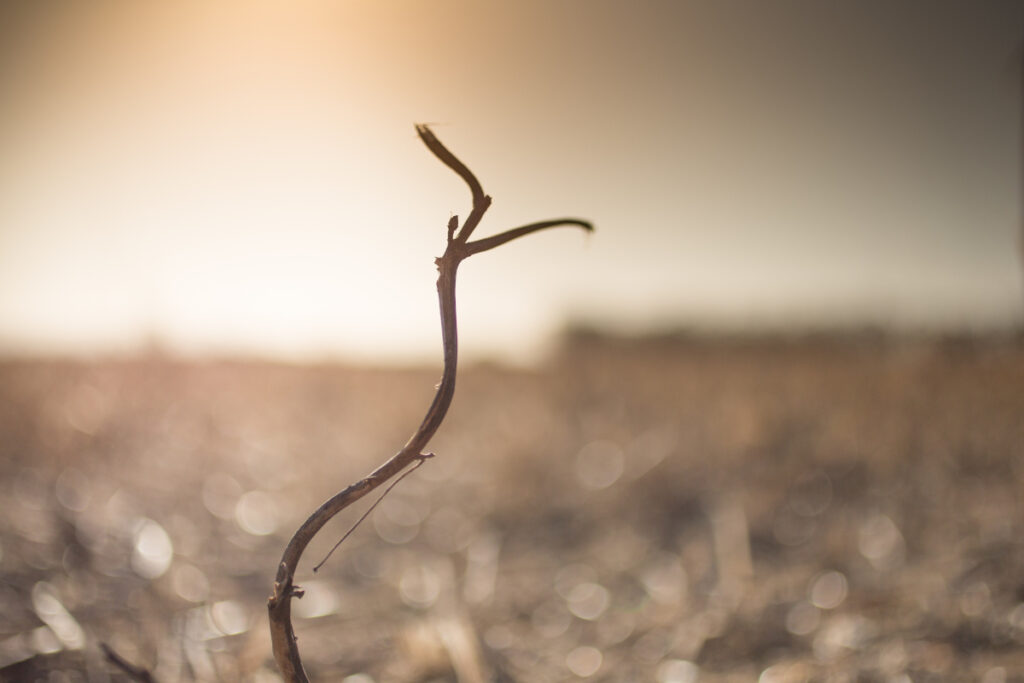
Part 1: The heart of our land
Embarking on any journey needs thinking ahead, the first steps into the unknown are taken with more stride if we have sustenance provided.
Who, in trepidation, approaches the first day of school without the comfort of bread in their lunchbox?
This product, historically such a part of humankind, even metaphysically tied to humankind*, completed the undisputed top mass hunger buster duo – that of soup and bread – 8 000 years before Christ. Bread is as fundamental to our story as the need to eat, but bread has its own story, and it starts with wheat!
As old as grass, this grain that evokes the concepts of sowing and reaping, the idea of nourishment and images of golden fields, leaves us silently and anciently aware of provision. Grain reminds us of gleaning, awakens our ideals of enough for us all, and then after hard work, after the “grind”, abundantly gives us its consumable product: Flour.
That, on its part evokes a different feeling altogether – at its best the desire to lick the bowl of life as images of hand shaped white powder stained aprons, kitchen memories of baking with our mothers, or daughters or cousins and the nostalgia of the smell of fresh baking, fills the mind…Flour is the epitome of the ability of unique creation (no two loaves of ciabatta are ever the same), and the ability of potential (the only limit is your imagination).
Only one more word is needed to fire up this uniqueness and potential and that word is “choice”. Since 2013 Gideon Milling, a stone ground wheat flour mill operating from Bellville, has added to South Africa’s choice of flour bringing you stone ground flour from non-GMO wheat.
This year, Gideon Milling will take you on a journey through the whole growers’ and production processes throughout the year. Our story commences in April with the pre-plant season.
Named after the Greek goddess Aphrodite and in Roman spelled “Aprilis”, meaning to open, the month of April in the Southern Hemisphere heralds in the beginning of autumn. For a season that pulls us indoors and lessens our time in the sun, autumn still has many fans. The fashion is creative, leaves are pretty, food is good.
In April we start thinking of long evenings, of books, thick socks and fireplaces. We start thinking about slow meals, like the aforementioned soup, perhaps sharing this with friends, but all of this spaced indoors.
Inevitably, by compelling us to retreat, the season facilitates introspection and investigating our thought processes and lives, as pieces of history laid bare to ourselves, we are given a chance to formulate and plan what lies ahead. Pertaining to the space in our mind, it is a slow time.
That is not unlike what happens on the arable land of our carefully selected growers that find themselves in the West Coast, Southern Cape and Swartland areas. They are the core of our vision: To transform the way farmers relate to the retail sector by having more direct involvement in their produce throughout the value chain. This was our groundwork, and motivates even the inception of our product to be of good quality – a healthy product from our growers to our consumers at an affordable price.
At this time of year “groundwork” is the key as the harvested land of our growers is laid bare and shows only some residue of what was harvested. This is left for sheep, birds and insects to eat and in the process, to fertilize. Like autumn invites our own richness in terms of creativity with fashion and food, many of our growers bring further richness to the land, in the form of chicken manure which decreases the need for fertilizer later.
All our growers practice regenerative farming i.e. minimum tillage and a three part crop-rotation system. Canola, which forms a high protective canopy over the soil, is planted in the first year and the legume, lupins – a natural source of nitrogen – in the second. The no-till or no ploughing regime reduces the use of fossil-fuels; it improves the soils’ fertility and resilience by increasing the amount of disease suppressing organisms. It also reduces or eliminates soil erosion.
In autumn the land is bare, it is raw and it may not be at its most attractive – but it is being prepared, it is being caressed by expectant growers for the bounty and beauty that will come in the following seasons of growing, flowering and harvesting.
After harvesting the wheat goes to silos from where it is transported in trucks to Gideon Milling. As harvesting is the end of the cycle on land, it is the beginning of a new cycle – that of the manufacturing of the product itself: Stone ground flour, a product with many advantages, mostly centered around the center of our very selves – the digestive system.
We know that an unhealthy digestive system impairs the body’s ability to absorb nutrients. Like the rested and prepared arable land of our growers gives the good harvest for our Gideon Milling stone ground flour a healthy digestive system is what gives our body the health and energy, the vitality for production in our own lives.
Stone ground flour is the beginning of being good for your digestive system, because in this process – as opposed to high speed rollers where heat is generated due to speed and friction – the protein stays in its natural form due to the slower grinding of the stones, which do not generate the excess heat that denatures the protein. In our unsifted whole wheat flour the wheat germ remains in the product. The wheat germ, in that product, ensures that the B vitamins and fatty acids are preserved. We know that heat causes the fat from the germ to oxidize and to become rancid. By avoiding this and us not wanting to add any preservatives there is a short shelf life on our unsifted whole wheat because it includes 100% of the wheat germ.
At Gideon Milling, we go through the grind slowly, because the most important aspect of any business is not speed, but the people involved. Each person not only represents a family and by extension a community, but a pair of hands. It is these hands that pack the flour into the recyclable bags and closes it manually that enable us to deliver a truly and proudly South African product, in its essence handcrafted.
We go through the grind (or in our case the best stone milling equipment available in the world) slower, because we know it results in a highly traceable product, one we can keep as affordable as possible because of savings throughout the value supply chain.
Like the inherent feeling of the season of autumn, we go through the grind slowly, because it results in a coarser product, one that is hailed for its texture and sweet nutty flavour. From our hands to yours, a humble product: A pack of flour with a unique journey, and potential for sustenance (and don’t forget fun) for your unique journey.
* For example, as is written about in Bread and the Liturgy: The Symbolism of Early Christian and Byzantine Bread Stamps by George Galavaris (1970) about stamps pressed into a loaves of uncooked bread, leaving the mark “Jesus Christ Victorious” to then be used as consecrated bread.
